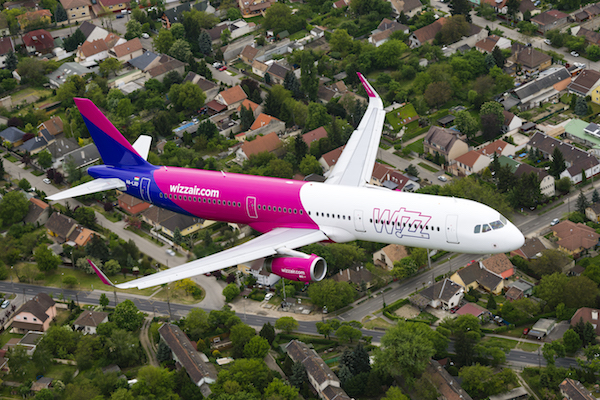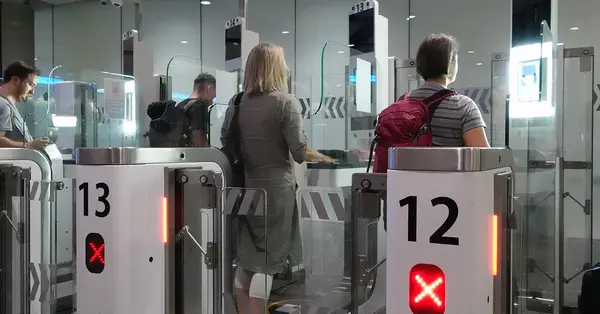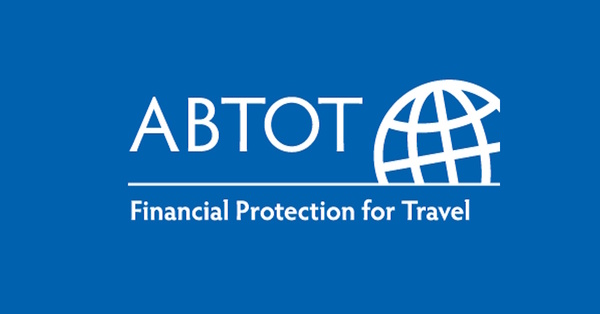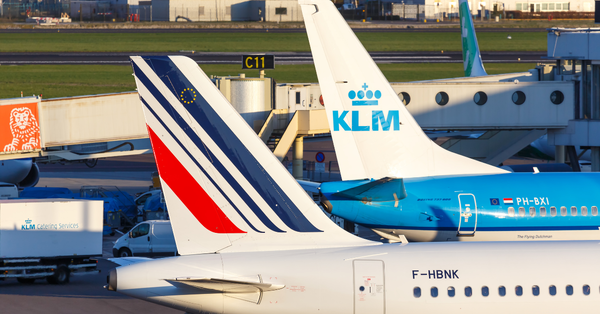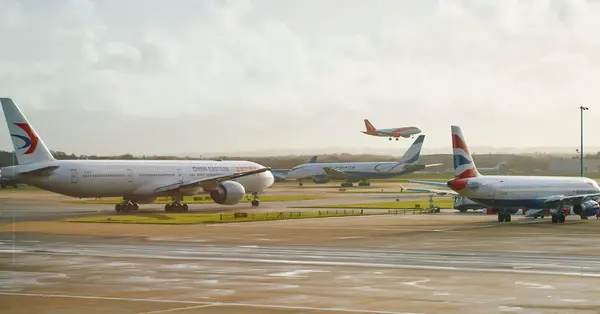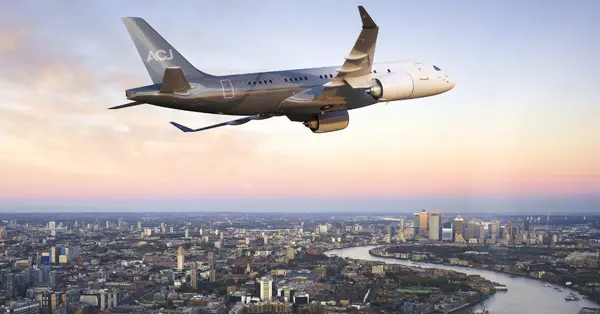You are viewing 1 of your 2 free articles
Wizz Air boosts staffing levels in bid to minimise disruption
Wizz Air staff numbers are due to exceed pre-pandemic levels this summer as the carrier pushes its ultra-low cost model.
The eastern and central European budget airline expects to fly as much as 40% more capacity over 2020 levels but issued a warning over supply-chain issues across the aviation sector.
More than 2,200 staff have been recruited over the past 12 months with the airline expected to employ a total of 6,700 by the end of summer 2022, up from around 4,000 people pre-Covid-19.
Wizz Air said it was seeing improving consumer demand coinciding with high travel season.
The airline added: “At the same time we are conscious that the trading environment can quickly change prompted by the impact of inflation and quantitative tightening on consumer demand.
“Nevertheless, summer demand indicators remain excellent at this point, supported by strong consumer dynamics: an urge to travel, improved household savings ratios in key markets, near-full employment and wage inflation.
“Our ultra-low cost model will thrive as consumers will choose the best value in the market.”
Chief executive Jozsef Varadi said investments in staffing, fleet and diversifying the network enabled Wizz Air to recover capacity faster.
Reporting a net loss of €642.5 million for the 2021-22 financial year while carrying 27.1 million passengers – up from €576 million last year – he said: “We believe we have now entered into an endemic phase of Covid-19 and have managed the trading impact from the war in Ukraine.”
But he warned: “The industry is witnessing supply-chain issues across airports, including in our network.
“Shortages of staff in air traffic control, security and other parts of the supply-chain are impacting airlines, our employees and our customers directly.
“We are deploying extra resources to minimise disruptions and urge all other stakeholders to do the same, having customers’ best interests always in mind.
“We see strong consumer demand for summer, but expect an operating loss for the first quarter.
“The airline industry remains exposed to externalities such as air traffic control disruption and continuing operational issues within the airports sector, adding to a volatile macro environment. As a result, at this point, we are not providing further financial guidance for the year.”
His comments came just days after the airline revealed a reduction of services from Doncaster Sheffield airport from June 10.
Varadi insisted that Wizz Air was ready to deliver its largest ever summer flying programme “and the fastest growth in the industry, enabled by more than 6,000 colleagues across the business”.
“Our planned capacity growth for the first two quarters of F23 [full year 2023] is over 30% and 40%, respectively, and for the year we expect even stronger growth versus F20 [full year 2020],” he said.
“This will be enabled by a fleet of 182 aircraft by the end of the fiscal year, with one of the highest renewal rates in the industry at more than 50% [Airbus] neo aircraft, an average fleet age of 4.1 years and an average seat count of 221, driving a strong and widening competitive advantage on cost and environmental sustainability.”
He added: “Rising energy costs and inflation across Europe will continue to favour ultra low-cost carriers as consumers reconsider spending choices.
“We are partially hedged over the summer providing partial protection against fuel price surges and we continue to look at opportunities to extend these insurance coverages for the full fiscal year at the right conditions.
“Our bookings are showing strong performance in the first fiscal quarter, with average fares trending higher at low single digits versus same period in F20 and with loads around 85% for the quarter.
“For fiscal quarter two, we expect fares in the upper single digits ahead of the equivalent period F20 and passenger load factors to deliver above 90%.”

